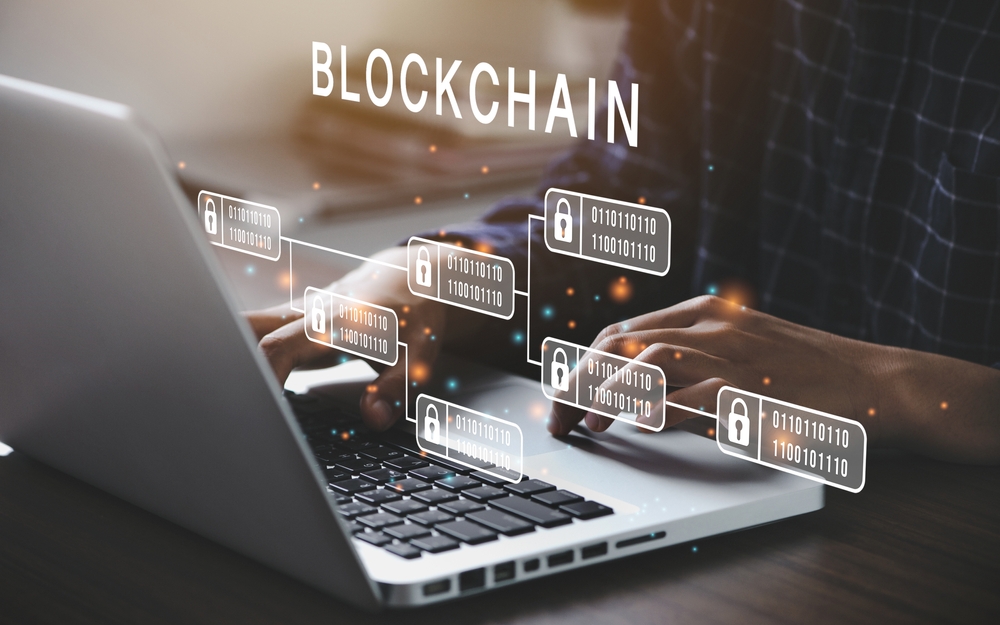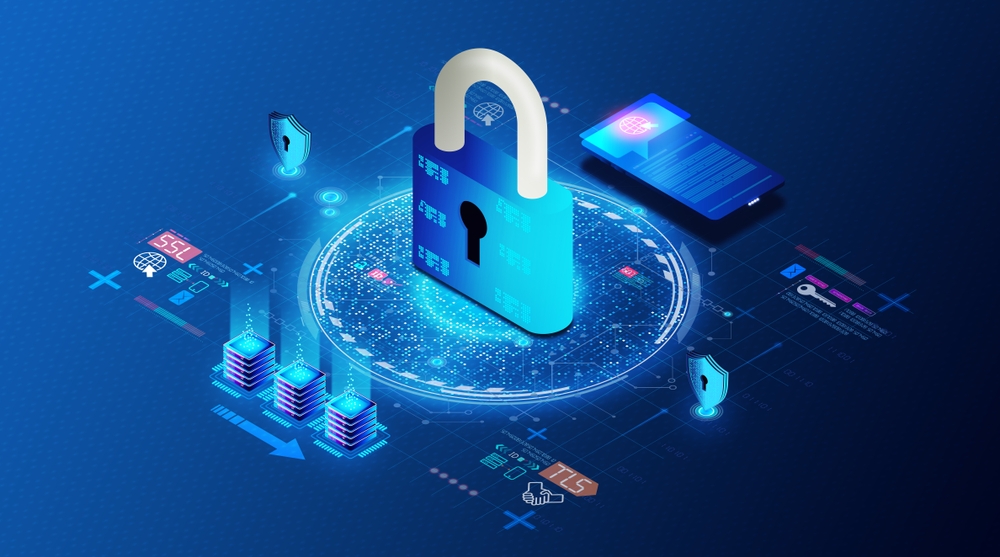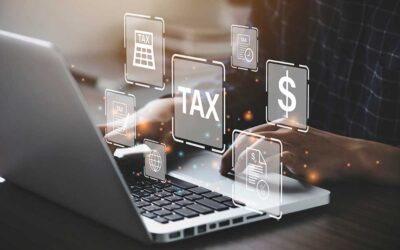Blockchain technology, originally designed for cryptocurrencies like Bitcoin, has evolved into a powerful tool that can revolutionize various sectors, including financial auditing. This decentralized ledger system offers enhanced transparency, security, and efficiency, making it a game-changer for audit processes.
Understanding Blockchain Technology
Blockchain is a distributed ledger technology that records transactions across multiple computers so that the record cannot be altered retroactively without the alteration of all subsequent blocks and the consensus of the network. Each transaction is recorded as a block and added to a chain in a linear, chronological order. This system is inherently secure due to its cryptographic hashing and decentralization.
Benefits of Blockchain in Financial Auditing
- Enhanced Transparency and Trust: Blockchain provides a transparent and immutable record of transactions, which can be accessed in real-time by auditors. This transparency builds trust as all parties can verify the data independently without relying on a single source of truth.
- Real-time Auditing: Traditional audits involve periodic reviews of financial records, often leading to delays and the potential for undetected fraud. Blockchain enables real-time auditing where transactions are verified and recorded instantly, reducing the need for time-consuming manual checks and improving the accuracy of audits (ISACA) (EY US).
- Reduction in Fraud and Errors: The immutability of blockchain records means that once a transaction is recorded, it cannot be altered or deleted. This reduces the risk of fraud and errors, providing a higher level of assurance for auditors (Deloitte United States) (Nexia).
- Cost Efficiency: By automating many aspects of the auditing process, blockchain can significantly reduce costs. Auditors can verify transactions through the blockchain without needing to request and review large amounts of paperwork, streamlining the entire process (Deloitte United States).
Key Blockchain Techniques in Auditing
- Smart Contracts: These are self-executing contracts with the terms of the agreement directly written into code. They can automate and enforce audit procedures, ensuring compliance and reducing the need for manual intervention. For instance, smart contracts can automatically trigger audits based on predefined criteria, providing auditors with immediate insights (ISACA).
- Public and Private Keys: Blockchain uses public key cryptography to secure transactions. Auditors can use public keys to verify the identity of transaction parties and ensure that the transactions are legitimate. Private keys, which are kept secure by the transaction parties, provide the ability to access and authorize transactions (Deloitte United States).
- Consensus Mechanisms: These are protocols that ensure all parties in the blockchain network agree on the validity of transactions. Common mechanisms include Proof of Work (PoW) and Proof of Stake (PoS). These mechanisms add an additional layer of security and verification, making it harder for fraudulent transactions to occur (Deloitte United States).
Challenges and Considerations
While blockchain offers numerous benefits, its implementation in financial auditing is not without challenges:
- Technical Complexity: Understanding and implementing blockchain technology requires a significant level of technical expertise. Auditors need to be trained in blockchain principles and the specific blockchain systems used by their clients (ISACA).
- Regulatory Uncertainty: The regulatory environment for blockchain is still evolving. Auditors must navigate a complex landscape of laws and regulations, which can vary significantly between jurisdictions (Nexia).
- Data Privacy: While blockchain is transparent, it must also comply with data privacy laws such as GDPR. Ensuring that sensitive information is protected while maintaining transparency is a critical challenge (Deloitte United States).
- Integration with Existing Systems: Many organizations have legacy systems that may not be compatible with blockchain technology. Integrating blockchain with these systems can be complex and costly (Nexia).
Future of Blockchain in Auditing
The future of blockchain in financial auditing looks promising. As technology matures, we can expect to see more widespread adoption and the development of new tools and techniques that further enhance the efficiency and reliability of audits.
- Automated Continuous Audits: Blockchain could enable continuous audits where transactions are verified in real-time, providing ongoing assurance rather than periodic snapshots (EY US).
- Global Standards: The development of global standards for blockchain in auditing could simplify regulatory compliance and enhance the interoperability of systems across different jurisdictions (Deloitte United States).
- Advanced Analytics: Combining blockchain with advanced data analytics and artificial intelligence could provide deeper insights into financial data, helping auditors identify trends and anomalies more effectively (Nexia).
Blockchain’s Role in Enhancing Data Integrity
One of the core advantages of blockchain technology in financial auditing is its ability to enhance data integrity. The immutable nature of blockchain records ensures that once data is entered into the blockchain, it cannot be altered or deleted. This characteristic is crucial for auditors, who rely on the accuracy and completeness of data to form their opinions.
Data Security and Integrity: Traditional databases are vulnerable to tampering and unauthorized changes. Blockchain’s decentralized nature mitigates these risks by distributing copies of the ledger across multiple nodes. Any attempt to alter a record would require changing all copies of the ledger, which is practically impossible without consensus from the majority of nodes. This significantly enhances data security and integrity (Deloitte United States) (Deloitte United States).
Audit Trail: Blockchain provides a transparent and verifiable audit trail. Each transaction is timestamped and linked to the previous transaction, creating a clear and unbroken chain of events. This makes it easier for auditors to trace the origin and journey of financial transactions, providing robust evidence for their audits (ISACA) (Nexia).
Implementing Blockchain in Auditing Practices
Implementing blockchain technology in auditing requires a strategic approach and a thorough understanding of both the technology and the auditing processes. Here are some steps and considerations for successful implementation:
Training and Education: Auditors need to be well-versed in blockchain technology. This involves understanding how blockchains operate, the various types of blockchains (public, private, and consortium), and the specific features and functionalities of the blockchain systems used by their clients (EY US).
Integrating Blockchain with Existing Systems: For blockchain to be effective, it must be integrated with existing financial systems. This can involve significant technical challenges, particularly for organizations with legacy systems. Auditors need to work closely with IT professionals to ensure seamless integration and data interoperability (Deloitte United States) (Nexia).
Regulatory Compliance: Auditors must ensure that blockchain implementations comply with relevant regulations and standards. This includes data privacy laws, financial reporting standards, and other regulatory requirements. Staying abreast of the evolving regulatory landscape is crucial for maintaining compliance (ISACA).
Future Trends and Developments
The future of blockchain in financial auditing looks promising, with several emerging trends and developments poised to further revolutionize the field.
Artificial Intelligence and Blockchain: Combining blockchain with artificial intelligence (AI) can enhance the capabilities of both technologies. AI can analyze blockchain data to identify patterns, anomalies, and trends, providing deeper insights and improving the efficiency of audits. This synergy can lead to more intelligent and automated auditing processes (Nexia).
Smart Contracts and Audit Automation: The use of smart contracts in auditing is expected to increase. These self-executing contracts can automate various audit tasks, such as triggering audits based on predefined criteria and automatically verifying compliance with regulations. This can significantly reduce the manual effort involved in auditing and improve the accuracy and reliability of the results (Deloitte United States) (Deloitte United States).
Blockchain Interoperability: As more organizations adopt blockchain technology, the need for interoperability between different blockchain systems will become more critical. Efforts are underway to develop standards and protocols that enable seamless communication and data exchange between different blockchains. This will enhance the scalability and utility of blockchain in auditing (EY US).
Regulatory Advancements: As the regulatory landscape for blockchain evolves, auditors will need to stay informed about new laws and standards that impact their work. This includes developments in data privacy, financial reporting, and other regulatory areas. Staying ahead of these changes will be crucial for auditors to maintain compliance and leverage the full potential of blockchain technology (ISACA).
Impact on the Auditor’s Role and Skills
As blockchain technology continues to integrate into financial auditing, it necessitates a significant shift in the role and skills required of auditors. Traditional auditing methods focused on manual verification and sampling will evolve into a more technologically-driven approach. This shift presents both opportunities and challenges for auditors, who must adapt to remain relevant and effective.
Technological Proficiency: Auditors must become proficient in blockchain technology to understand how it functions and its implications on financial records. This includes knowledge of cryptographic principles, consensus mechanisms, and the various types of blockchain (public, private, and consortium). Auditors need to be able to navigate and interpret blockchain data to effectively audit blockchain-based financial records (Deloitte United States) (Deloitte United States).
Data Analytics Skills: The massive amount of data stored on blockchains requires advanced data analytics skills. Auditors will need to use sophisticated tools and techniques to analyze blockchain data, identify patterns, and detect anomalies. This includes leveraging artificial intelligence and machine learning to enhance their analysis and provide deeper insights into financial transactions (Nexia) (EY US).
Continuous Learning and Adaptation: The rapid pace of technological advancement means that auditors must commit to continuous learning. They need to stay updated on the latest developments in blockchain technology, regulatory changes, and new auditing standards. Professional development and ongoing education will be crucial for auditors to maintain their expertise and adapt to the evolving landscape (ISACA) (Nexia).
Ethical and Legal Considerations: As blockchain technology provides greater transparency and immutability, auditors must also consider ethical and legal implications. Ensuring data privacy and complying with regulations like GDPR is essential. Auditors need to develop a strong understanding of the legal frameworks surrounding blockchain and ensure that their auditing practices align with these regulations (Deloitte United States).
Integration with Other Emerging Technologies
The integration of blockchain with other emerging technologies promises to further enhance the capabilities and efficiencies of financial audits. By combining the strengths of various technologies, auditors can achieve more comprehensive and reliable results.
Artificial Intelligence (AI): Integrating AI with blockchain can significantly enhance the audit process. AI algorithms can analyze large volumes of blockchain data to identify trends, anomalies, and potential fraud. Machine learning models can learn from historical data to predict future patterns and assist auditors in making informed decisions. This integration can automate routine tasks, allowing auditors to focus on more complex and value-added activities (EY US) (Nexia).
Internet of Things (IoT): The IoT can complement blockchain by providing real-time data from connected devices. For instance, IoT sensors can track inventory levels, monitor asset conditions, and record environmental data. When this data is recorded on a blockchain, it creates an immutable and verifiable record that auditors can use to verify the accuracy of financial statements. This integration can enhance the reliability of audit evidence and provide a more comprehensive view of a company’s operations (ISACA) (Deloitte United States).
Smart Contracts: Smart contracts can automate compliance and reporting processes. These self-executing contracts can trigger audits based on predefined conditions, ensuring that audits are conducted regularly and consistently. Smart contracts can also enforce regulatory requirements and ensure that transactions comply with relevant laws and standards. This automation reduces the risk of human error and enhances the accuracy and reliability of audits (Deloitte United States).
Blockchain Interoperability: As organizations adopt different blockchain platforms, the ability to achieve interoperability between these platforms becomes crucial. Interoperability allows for seamless data exchange and communication between different blockchains, enhancing the efficiency and effectiveness of audits. Auditors will need to understand and navigate multiple blockchain systems to ensure comprehensive coverage of all financial transactions (Nexia) (EY US).
Blockchain’s Continued Evolution in Financial Auditing
Blockchain technology is set to revolutionize financial auditing by enhancing transparency, security, and efficiency. The immutable and decentralized nature of blockchain provides a robust framework for recording and verifying financial transactions. However, the successful integration of blockchain in auditing requires auditors to develop new skills and adapt to technological advancements.
The combination of blockchain with other emerging technologies such as AI, IoT, and smart contracts holds great promise for the future of auditing. These integrations can automate and enhance various aspects of the audit process, providing deeper insights and more reliable results.
As the landscape of financial auditing continues to evolve, auditors must stay informed and embrace continuous learning to leverage the full potential of blockchain technology. By doing so, they can provide more accurate, efficient, and trustworthy audits, ultimately contributing to the integrity and reliability of financial reporting.
For further reading on the impact of blockchain on financial auditing, you can explore resources from ISACA, Deloitte, and EY.






